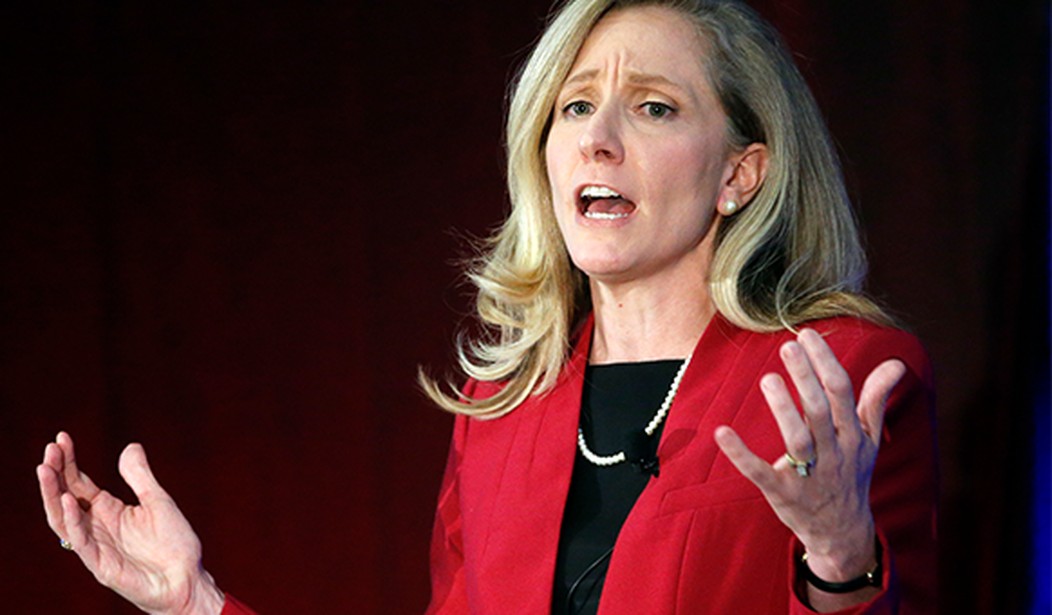It seems the newest members of Congress in the House Democratic Caucus are off to a banging start…by saying and voting for bills that are considered anathema to the progressive base. Yesterday, Rep. Abigail Spanberger (D-VA), who booted incumbent Republican David Brat in 2018, brought up campaign finance yesterday at the National Press Club. Reversing Citizens United is one of the many issues that jack up the progressive Left. At the event, Spanberger brought up Virginia’s campaign finance laws, the remarks voters said to her about corporate PAC money, and what her mother told her every time she got into trouble for whatever her younger sisters had done.
When she tried to explain, her mother would say, “her perception is her reality.” She circled that back to the long-standing feeling that there’s a lack of trust in government.
“When a voter believes that a $5,000 check is enough to vote in a way that is somehow against their interest, I don’t think that’s true in many cases, but if that’s their perception, that goes back to this whole conversation about trust,” she said. “And for me to say, you know, I want to sit down with this company, I’m going to sit down with this company, I’m going to maybe vote in a way that this voter may not like, but you will know that I didn’t do it because of a campaign contribution.”Oh, I forgot, she isn’t offended by the concept of corporate PAC money existing. Spanberger added that her refusal to accept such money isn’t anti-business, but a way for her to speak with any company that could potentially create economic activity in her district. It sounds nice. It’s certainly tailored to the moderate Richmond suburbs that are within her district, but as a liberal Democrat, you have to be offended by corporate PAC money. It’s in their ten commandments.
So, for voters in Virginia’s 7thcongressional district, specifically Spanberger voters of course, when she screws you over, you can sleep soundly that it wasn’t because of a single campaign contribution. On a side note, this is a red herring. It’s not a systemic problem. In fact, Americans spend more money on groceries than they do on those who will supposedly represent them in D.C. George Will, before he left the GOP, aptly noted this years ago:
Recommended
Another '70s project, in the wake of Watergate, was campaign finance reform -- government regulating the quantity, timing and content of speech about government. But political purity has been elusive, and today, as usual, there is, from the usual people, high anxiety about "too much" money being spent on politics. That is, what the improvers consider too much political speech, the dissemination of which is what most campaign contributions finance.
Total spending, by all parties, campaigns and issue-advocacy groups, concerning every office from county clerks to U.S. senators, may reach a record $4.2 billion in this two-year cycle. That is about what Americans spend in one year on yogurt but less than they spend on candy in two Halloween seasons. Procter & Gamble spent $8.6 billion on advertising in its most recent fiscal year.
Those who are determined to reduce the quantity of political speech to what they consider the proper amount are the sort of people who know exactly how much water should come through our shower heads (no more than 2.5 gallons per minute, as stipulated by a 1992 law). Is it, however, really worrisome that Americans spend on political advocacy -- on determining who should make and administer the laws -- much less than they spend on potato chips ($7.1 billion a year)?
Desperation drives politicians to talk about process rather than policy.
Hey, this is a minor trip up compared to Ocasio-Cortez voting to fund ICE when she wants to abolish it.

























Join the conversation as a VIP Member